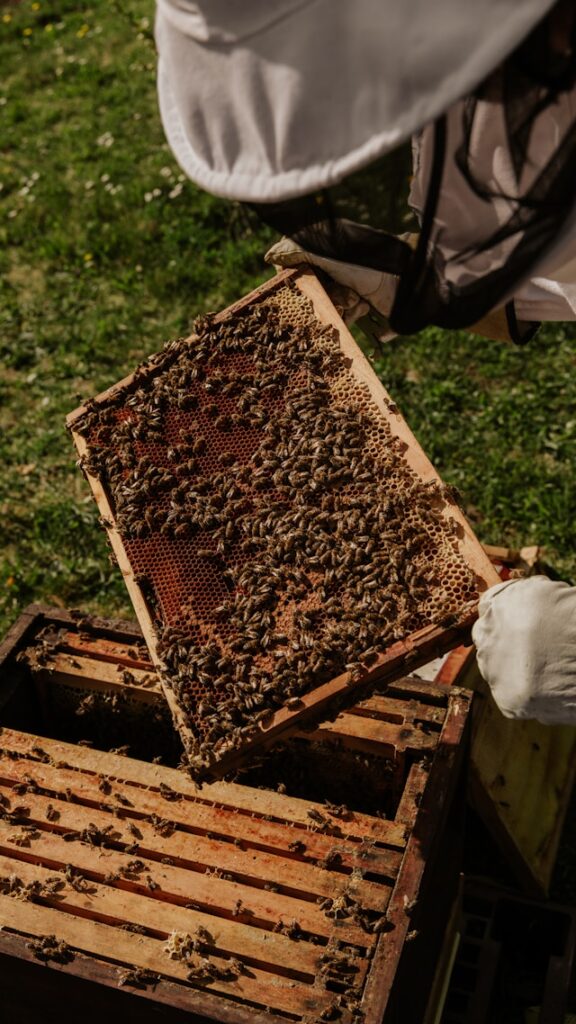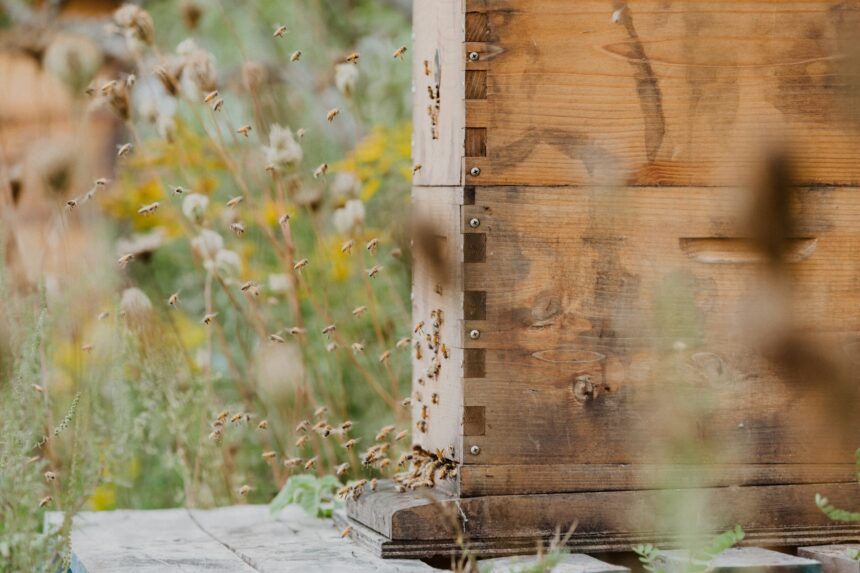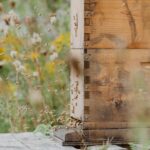In a quiet corner of the English countryside, a man drapes a black cloth over his beehives and whispers to them. He tells them that his wife has died and pours out his grief to the bees much in the same way we would to a cherished friend.
He doesn’t perform this act out of superstition, but out of courtesy.
For centuries, beekeepers across Western Europe and parts of Appalachia practiced a ritual known as telling the bees—the act of informing one’s hives of major life events: deaths, marriages, births, and departures. The belief was simple: bees are part of the household, and deserve to be kept in the loop. Failing to do so might result in the bees abandoning the hive, falling ill, not producing, or even dying.
Some would tap gently on the hive with a key. Others would leave slices of wedding cake or funeral biscuits beside the entrance. But it’s the ritual of telling that always rings true.
Upon the death of Queen Elizabeth II in 2022, the Royal Beekeeper, John Chapple, knocked on each hive to say, “The mistress is dead, but don’t you go. Your master will be a good master to you.”
There’s something quietly radical about this ritual. Not because of the folklore per se, but more so because of what it assumes—that nature is listening.

We used to treat nature like kin.
In the ritual of telling the bees, bees are not treated as “livestock.” They’re mourners. Witnesses. Recipients of secrets and sorrow. It’s a level of intimacy that feels foreign now, a bit strange, to us living in an age where we carry the world in our pockets and can speak to quite literally anyone at a moment’s notice. Whereas the idea of speaking to bees is poetic at best. At worst, maybe a little unhinged.
But perhaps we’re the unhinged ones.
We measure our days in likes and logistics, moving so fast we barely register the shift in seasons much less the hum of our backyards. When was the last time you told anything in nature something that mattered to you? Not as performance for a post you’ll make later, nor silently in your head as something you think. I mean, when was the last time you actually spoke out loud to nature?
There’s grief work embedded in this tradition. A kind of embodied emotional intelligence we rarely allow ourselves anymore. Saying something aloud—especially to the living, breathing world—gives it shape. It also give’s life’s joys more texture. A marriage announced to the bees was blessed not only by the church, but by the clover, the sun, and the soft murmur of wings.
These aren’t just gestures—they’re reminders that we exist within a web of interdependence. That our lives touch things we do not see. We have, quite literally, lost the plot. And with it, the rituals that root us in something older, wiser, and more generous than ourselves.
How to “tell the bees” in the modern world
You don’t need a hive to keep this tradition alive. Here are a few ways to reweave that thread of connection to the natural world.
Plant a pollinator garden
Grow something for the bees, butterflies, and the invisible networks of life that keep the world intact. Choose native flowers for a corner of your and let some things go wild.
Tend to a ritual spot
A fig tree in the yard. A windowsill herb pot. A bench beneath an old oak. Whatever spot in nature draws you in, visit it regularly. Share what’s real. Let it be enough.
Create small ceremonies
Light a candle for a friend’s passing. Write a letter to your former self and bury it. Mark the birth of something—an idea, a child, a change—with flowers or tokens of food left outside.
Speak aloud in nature.
Go for a walk and speak what’s on your heart. No hashtags, no witnesses. Just you and whatever’s listening.
Slow down, on purpose
Make space for the sacred in the mundane. Be bored. Let stillness feel productive. Let silence count as communication.
These aren’t acts of nostalgia. They’re acts of rebellion in a culture that teaches us nature is a backdrop, not a companion.
We may not believe in omens or portents anymore, but maybe belief isn’t required. Maybe it’s enough to act like the world is alive, even if only as an experiment. What if the land misses our stories? What if the bees remember everything we’ve forgotten?
In an era where we’re more tune to the buzz of our phones than the buzz of bees, remember they are still listening.
Plant something. Whisper something to the wind. Tell the bees.
They’re waiting.









